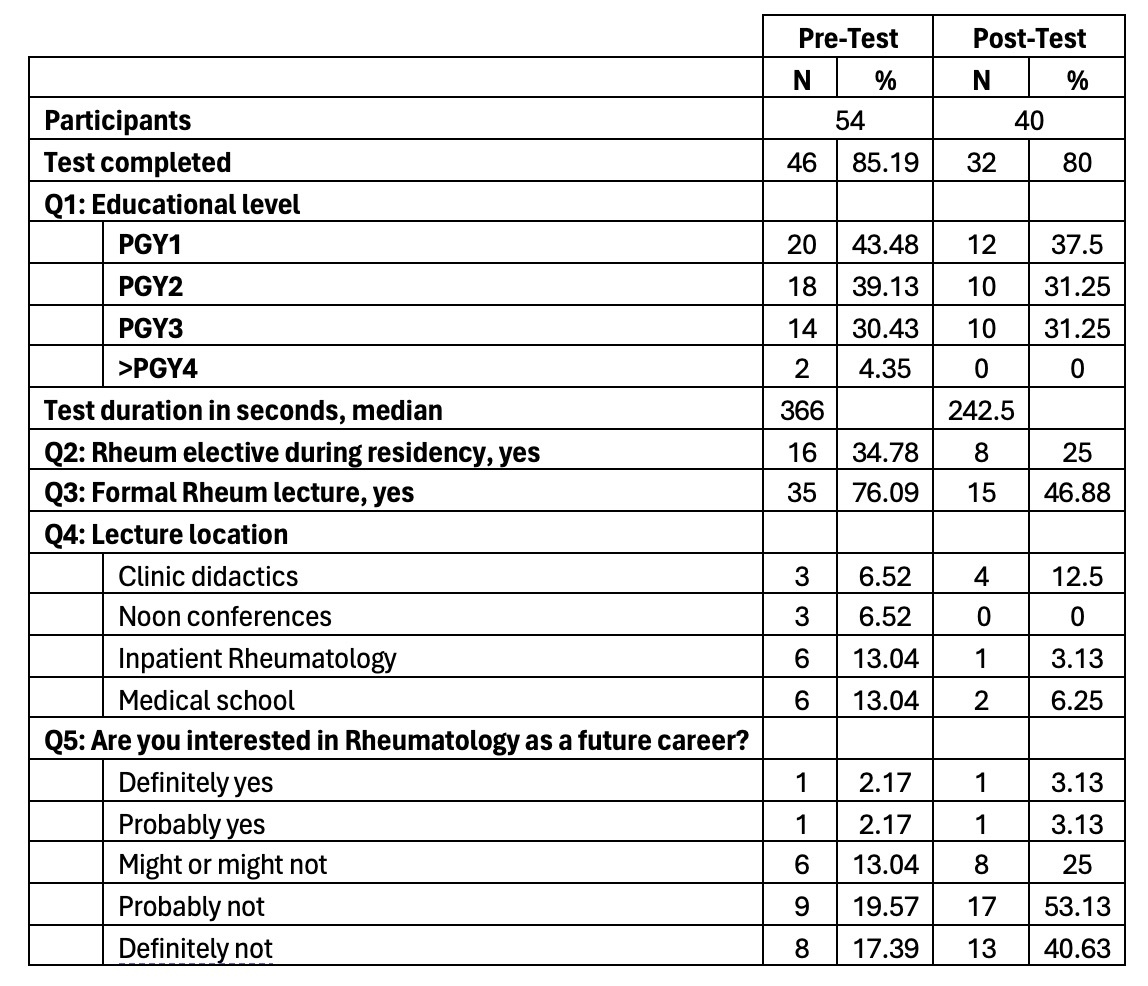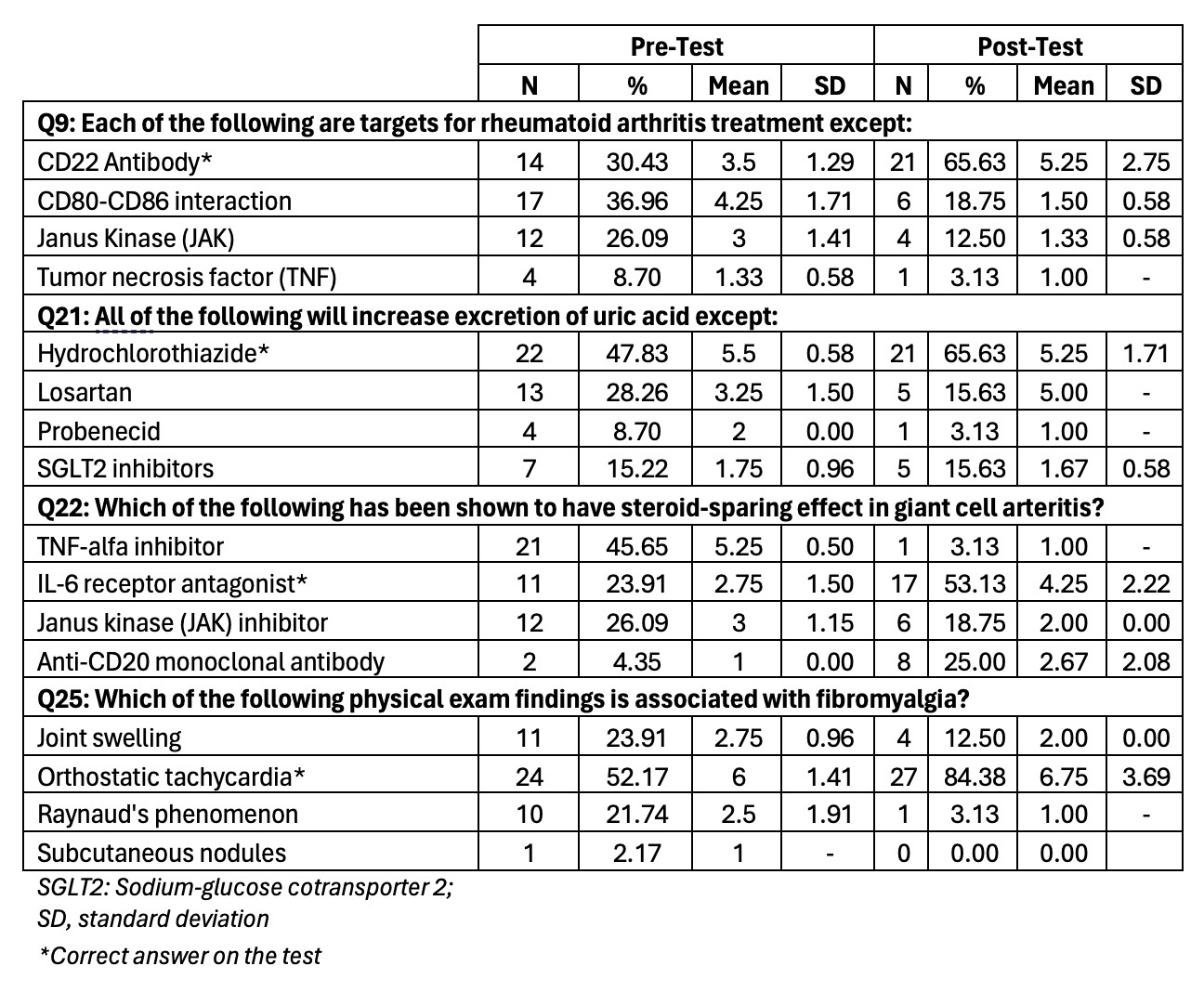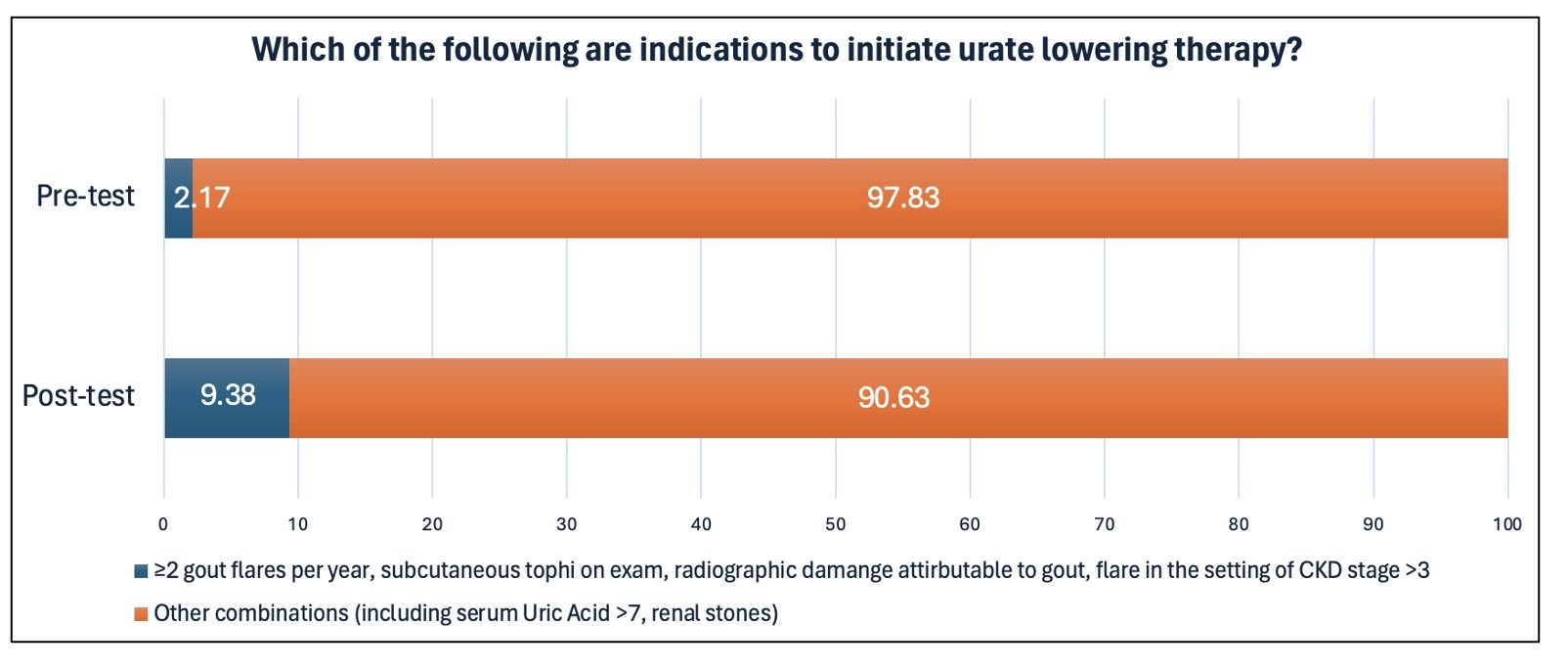Session Information
Session Type: Poster Session B
Session Time: 10:30AM-12:30PM
Background/Purpose: Rheumatology is facing an imminent workforce shortage adversely affecting patients’ access to care. Primary care physicians are key stakeholders in the early evaluation and management of rheumatology patients. A preliminary analysis of primary care training at an academic residency program suggested a significant knowledge deficit among these key stakeholders. To address this gap, we implemented a Case-Based Primary Care Rheumatology Curriculum (CPCRC) in a Primary Care Internal Medicine Program, focusing on twelve common rheumatic diseases and their relevant rheumatologic underpinnings.
Methods: Twelve illustrative cases were used to instruct primary care residents on the common presentation and key issues related to the early management of rheumatic diseases. Online pre- and post-didactic knowledge assessments were accessed via a QR code survey. Academic sessions, totaling four hours, were divided into 45-minute segments with breaks. The interactive learning sessions were administered by two core rheumatology faculty in three different blocks to ensure the entire residency program could attend across postgraduate year (PGY) levels. Descriptive statistics were used to evaluate knowledge assessments pre- and post-didactic.
Results: 54 participants attended the sessions, with 85% completing the pre-test and 80% completing the post-test. The participants included 40.5% PGY1, 35.4% PGY2, 30.4% PGY3; 30.8% had taken a Rheumatology elective, and 2.5% were interested in a Rheumatology career. The highest pre-test scores were on questions related to medications associated with SLE mortality (82.6%, mean 9, SD 0.58) and RA triggering risk factors (89.1%, mean 10.3, SD 2.2). The lowest pre-test scores were for questions on urate-lowering therapy in gout (2.2%, mean 1) and drug-induced lupus medications (4.4%, mean 1). Overall, 91% of participants demonstrated knowledge acquisition as measured by post-test score improvement.
Conclusion: Our study suggests that primary care trainees have a significant knowledge deficit in the diagnosis and management of 12 common rheumatologic conditions. Implementation of a CPCRC effectively provided knowledge acquisition among primary care trainees. At baseline, participants demonstrated good understanding of RA risk factors and SLE mortality reduction medications but poor knowledge of gout management in urate-lowering therapy. Post-intervention testing demonstrated improvement in knowledge gaps among key stakeholders, which supports further implementation of a CPCRC in internal medicine training programs.
To cite this abstract in AMA style:
Cabrera D, Hsiao B, Koumpouras F. Tackling Rheumatology Workforce Shortages with a Case-Based Primary Care Rheumatology Curriculum [abstract]. Arthritis Rheumatol. 2024; 76 (suppl 9). https://acrabstracts.org/abstract/tackling-rheumatology-workforce-shortages-with-a-case-based-primary-care-rheumatology-curriculum/. Accessed .« Back to ACR Convergence 2024
ACR Meeting Abstracts - https://acrabstracts.org/abstract/tackling-rheumatology-workforce-shortages-with-a-case-based-primary-care-rheumatology-curriculum/



